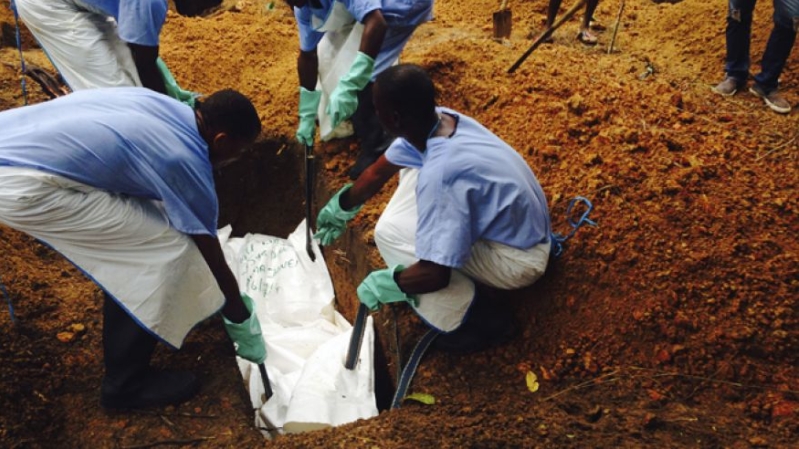
Liberia, which was recently declared Ebola-free, reported a new case of the virus Tuesday, sparking fears that the deadly disease may be making comeback in the region.
On Tuesday, the body of a 17-year-old boy tested positive for Ebola in Margibi County, an area that stretches from the coastline southeast of Monrovia into Liberia's central region in the northeast.
The teenager reportedly fell ill June 21 and died three days later. The case was discovered after a burial team in Margibi County was alerted to the boy's mysterious death. The team collected bodily fluid, which later tested positive for Ebola, Deputy Health Minister Tolbert Nyenswah said, NBC News reported.
Authorities have already begun tracing people the victim may have come into contact with while infected. Additionally, the village where the boy was from was immediately placed under quarantine and food was airlifted to the site.
"There is no need to panic. The corpse has been buried and our contact tracing has started work," Nyenswah told Reuters.
The deadly disease, which is transmitted through direct contact with infected blood or body fluids, terrorized much of West Africa from December 2013-March 2015. The spread of Ebola, which has a death rate of 50% or more, peaked between last August and October with 300-400 cases reported every week.
During this time, at least 11, 207 people died from the disease and over 27,000 were infected, according to World Health Organization (WHO) spokesman Tarik Jasarevic. 43% of those deaths occurred in Liberia.
USA Today reports that Liberia celebrated with fasting, prayer, singing and dancing when WHO declared the country free of Ebola on May 9, a decision rendered after 42 days passed without a new infection, twice the 21-day incubation period for the deadly virus. Schools and sports facilities reopened, and and the Confederation of African Football cleared Liberia to host international games.
However, in neighboring Guinea and Sierra Leona, the combined total number of new infections has remained steady for several weeks at between 20 and 27, according to WHO.
Fatoumata Lejeune-Kaba, spokeswoman for the U.N. Ebola response mission, said, "This should have been expected because as long as there is Ebola in the region no one country can be safe. Liberia is vulnerable because of Guinea and Sierra Leone."
She added that this latest case of Ebola "will test Liberia's response capacity at a time when international health organizations have wound down their presence in the affected countries."
Jasarevic said Tuesday that "although this (Liberia Ebola death) is not the situation we were hoping for, this incident shows that the alert system is working, that there is the capacity to quickly identify, isolate, treat and track every contact and stop further spread of the disease. It is critical that the Liberian people remain vigilant."






